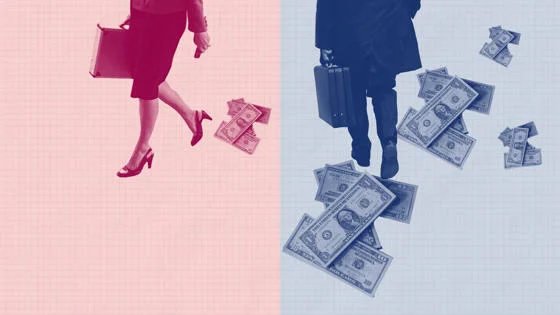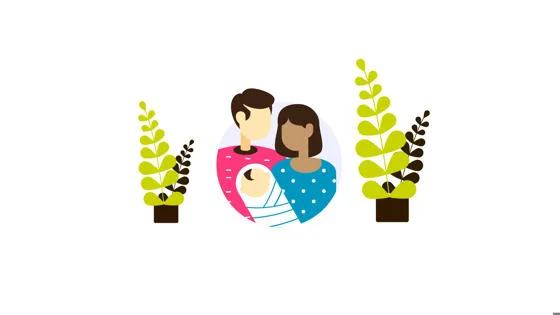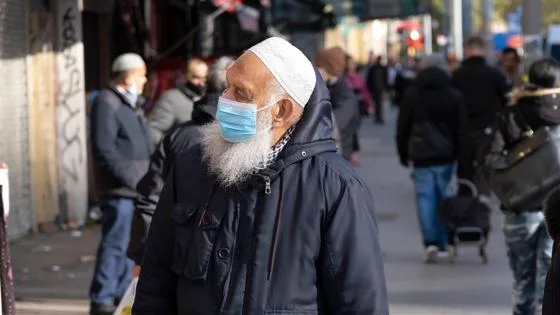Lack of data on gender will inhibit pandemic recovery

Contents
When the UK government locked down the country as a result of the coronavirus pandemic, "we're all in it together" became a rallying cry for columnists putting a positive spin on the fact that, for many at least, home, school and work were now all under one roof. As lockdown progressed, however, it became clear that rather than levelling the field, COVID-19 was exacerbating inequalities – including the gender gap.
Dr Clare Wenham, Assistant Professor of Global Health Policy at LSE, is not surprised that policy responses to COVID-19 have served to highlight gender divisions. Having researched the impacts of past epidemics such as Ebola and Zika, as well as the current pandemic, she argues that it is vital that policymakers consider gender when formulating global health policy.
"We know from across health systems that men and women don’t experience health in the same way" she says. "There are certain biological reasons, but also many societal, structural and social reasons for this, and when we look at outbreaks, this gendered effect becomes even more acute."
Gender norms vary depending on cultural norms, but we are finding commonalities and sticking points where women are being affected differentially to men across the board.
What has health to do with the gender gap?
The ways women can be impacted by epidemics, outside of health, are broad and complex. "When we think about outbreaks, a whole number of secondary effects happen to women differently to men" Dr Wenham says. "First, we know that women are more likely to be infected because of their caring role. Seventy per cent of the global health workforce are women, so they’re the ones in direct contact with infectious people. That extends to the home, where women, for social norms, are more likely to be infected as well as to take time off work to care for a sick child.
"There are also the unseen burdens, which we’ve seen with coronavirus. Women are more likely to take on the home schooling, the housework, all the small burdens that tend to fall disproportionately between men and women, and that of course has a direct impact on their ability to work."
Women are also more at risk of domestic violence during lockdown situations, Dr Wenham argues, and less likely to work in sectors that return to work quickly once the epidemic has passed.
"Women’s economic empowerment is also affected by outbreaks more than men" she says. "From the Ebola outbreak in West Africa we saw, after quarantine, men returned to paid work much quicker than women. We think that’s for mixed reasons such as schools reopening at different times, getting used to gendered norms of distribution of labour within households, not being able to afford to return to work if there are other caring responsibilities."
The impact of a pandemic
"This is all happening again with coronavirus. We’re seeing more women than men being furloughed in the UK for example, and the first industries back to work have been traditionally male dominated ones like construction. We’re anticipating that more women will lose their jobs as a consequence too, mainly because women are more likely to be in part-time work, or with flexible hours and so are the easiest one to cut when it comes to making decisions around redundancy."
The devastating impact such crises can have on women’s economic and social outcomes can last far beyond the outbreak itself, which is why Dr Wenham is leading a new research project to understand the real-time gendered effects of COVID-19. A cross-country comparison between Hong Kong, China, the UK, Kenya, Nigeria, the Democratic Republic of the Congo, Brazil, Bangladesh and Canada, the project will look at how governments are responding and the gender implications of these responses to the virus.
Helping government understand the gendered impact of policy responses
The focus will be on the socio-economic impact of the pandemic response. Researchers will conduct media analysis, as well as policy analysis to understand where gender is considered or not, as well as to understand the gendered implications of the policy responses.
"We’re also conducting interviews with women in the key groups that we deem to be at risk" Dr Wenham explains. "We’re talking to those working in high risk industries, which are predominantly female and at most risk of closing, pregnant women, new mums, migrant women, parents and healthcare workers.
"Gender norms vary depending on cultural norms, but we are finding commonalities and sticking points where women are being affected differentially to men across the board. Our aim is to have lessons learnt for next time a crisis like this happens, but also to provide evidence for governments coming out of lockdown – to advise that these are the things that are at risk and these are the ways you can change now or plan for the next steps to mitigate the longer term effects."
But are we open to learning lessons from the past?
As Dr Wenham highlights, none of the issues facing women as a result of COVID-19 are new. Yet despite Zika and Ebola, gender is still not a top priority for policymakers. One of the reasons for this, she believes, is a lack of data.
"Not all the UK government’s data is sex disaggregated" she explains. "I understand that governments are under huge pressure and can’t do everything, but by not asking the questions you don’t see the problem and can’t make informed decisions about what to prioritise."
One of Dr Wenham’s frustrations is the government’s decision in March to suspend the reporting of gender pay gaps. "We need that data to understand how women are being impacted" she argues, "because it’s those that are lower paid who are going to lose their jobs, and these are more likely to be women.
"This data gap is something we hope this project will help fill, because what is clear is that many women are going to be heavily impacted by COVID-19. We need data so that policymakers can see this is an urgent issue, and also to help identify effective and equitable policies that can be put in place as we come out of this pandemic, so women are not disproportionately impacted by this crisis."
Clare Wenham was speaking to Jess Winterstein, Deputy Head of Media Relations at LSE.
Image: Milos Stankovic/iStock.
The LSE iQ episode can also be listened to on LSE Player.
Download a PDF version of this article




